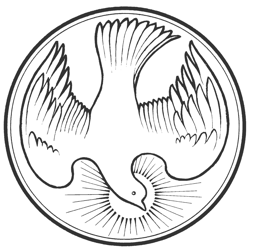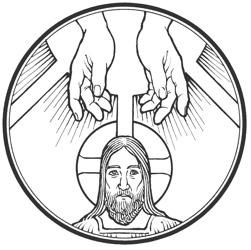Text: Galatians 5:1, 13-25
Grace, mercy, and peace to you from God our Father, and from our Lord and Savior, Jesus Christ, amen. The text for the sermon is the Epistle, which was read earlier.
When we last left the Galatians, Paul has left and the Judaizers have assumed the role of preacher in the Galatian church. We saw how they had forsaken Jesus in order to become slaves to the law of man. We were left with the question of why. Why would they give up Jesus and the Gospel for something that leaves them without the salvation that God had ordained for them from man’s fall into sin? Today, Paul continues on the theme of slavery: “For freedom Christ has set us free; stand firm therefore, and do not submit again to a yoke of slavery….”
Paul tells the Galatians what they have: freedom. Paul tells them where that freedom is found: Christ. You are free in Christ. You are free in the Gospel. You are free. What great news to a Christian that you are free, that your sins have been forgiven for the sake of Jesus Christ! That is news that you should be celebrating, shouting from the rooftops. Instead, the Galatians have given up their freedom to fall into the false teaching of salvation by works.
Now you might be asking yourself, how could they give up Jesus so easily? It’s a very valid question. But I need to ask you a question: how can you give up Jesus so easily? We have given up Jesus over and over again for things that scratch our itching ears now but are fleeting. Who needs Jesus when you can read this book or that book? Who needs Jesus when you have the latest and greatest multi-step program that will make your life the greatest life possible? Who needs Jesus when the world has everything you need to find peace and comfort in this life until you don’t have it anymore?
We’re quick to give up on Jesus, to give up on the Gospel, for something new and shiny, but new and shiny doesn’t get you salvation; only Jesus gets you salvation. That’s what Paul tried to impress upon the Galatians. To have such a rich and free thing as the Gospel and then to surrender it for works of man’s law seems absurd, at least to Paul, but not to the Galatians. Why would that not sound absurd to them? Why would that not sound absurd to us?
We are justified in the sight of God by faith in Jesus Christ. Only by faith in Jesus Christ, not by any good works we do. Works cannot justify us because we are totally condemned by the Law of God and we cannot change our own condition. But because of Jesus Christ, His death and resurrection, we can through faith in Christ be justified in the eyes of God. Justification means being made holy. We are clean in God’s eyes on account of Jesus.
It’s our sinful flesh that has to get in the way of things. It’s our thought that we can do something to save ourselves that gets us into trouble like it did the Galatians. That’s why Paul tells them, “For you were called to freedom, brothers. Only do not use your freedom as an opportunity for the flesh, but through love serve one another.” What does this mean? Luther writes, “Paul says in effect, “You have now obtained freedom through Christ; you are far above all laws in respect to conscience and life before God. You are blessed and saved. Christ is your life. Therefore, although the law, sin, and death may trouble and frighten you, they cannot hurt you or drive you to despair. This is your excellent freedom. Now it is up to you to be careful not to use that freedom as an opportunity for the flesh.””
What is being said here? What point does Paul make and Luther reinforce? You have Christ, stop going back to the law! It is a very simple thing, and yet becomes so complicated. They have all they need and they throw it away for no good reason. Paul restates the principle and applies it. When we were called to faith by the Holy Spirit through the Gospel, we were called to be free from trying to earn our own way into heaven. But that does not mean that we are to attempt to sin our way into heaven. We are not to indulge the sinful nature, but drown it.
The Galatians are suffering from the ill-effects of listening to something other than the Gospel. Because of that, they “bite and devour one another…” The Galatians were not cannibals, but their words and actions toward each other were extreme. The words Paul chose accurately portray the viciousness in each human heart, the very opposite of loving your neighbor as yourself.
There is nothing left to do except give up this foolish law-based living and return to the saving Gospel of Jesus Christ. Again, if you have no Jesus, what salvation do you have? So, Paul’s advice to them is simple: “But I say, walk by the Spirit, and you will not gratify the desires of the flesh. For the desires of the flesh are against the Spirit, and the desires of the Spirit are against the flesh, for these are opposed to each other, to keep you from doing the things you want to do.” Paul is writing about the conflict between the old man and the new man. The old sinful flesh comes with its desires, demanding that they be gratified. The new man, however, directs us to God’s law, not as something that must be done, as if we were still under the law, obliged to keep all of the laws; but as something we will delight to do because of the Savior’s love for us.
Paul describes the desires of the sinful nature that dwells within each of us. We are inclined to all of these things, to some of them more than to others. Jesus also said that sin flows from the sinful heart of man. Paul adds his warning “that those who do such things” will be excluded from heaven. Not those who did these things and repented, but those who have made them their way of life and continue in them are meant. Those who use their freedom to indulge the sinful nature are forfeiting their salvation. These sins, like every other sin, are damning. No one is immune to these or any other sin, but what we must remember is that the only way of salvation lies in Jesus and not in yourself.
We are free in the Gospel. Christ has set us free and we continue to be, provided our trust and faith remains in Him and not in anything else. You have been freed from sin because Christ has died for you and risen again for you. Your sinful self has been crucified, and must be crucified daily. As Luther writes about Baptism: “It indicates that the Old Adam in us should by daily contrition and repentance be drowned and die with all sins and evil desires, and that a new man should daily emerge and arise to live before God in righteousness and purity forever.” Be free, free in the Gospel, with sins forgiven. Rejoice in the salvation won for you by Jesus Christ. “Stand firm therefore, and do not submit again to a yoke of slavery.” How is that possible? How do we do that? We do so by heeding the words of Jesus, “So if the Son sets you free, you will be free indeed.” In the name of Jesus, amen. Now the peace of God that passes all understanding, keep your hearts and minds through faith in Christ Jesus, amen.

 Grace, mercy, and peace to you from God our Father, and from our Lord and Savior, Jesus Christ, amen. The text for the sermon is the Gospel, which was read earlier.
Grace, mercy, and peace to you from God our Father, and from our Lord and Savior, Jesus Christ, amen. The text for the sermon is the Gospel, which was read earlier.